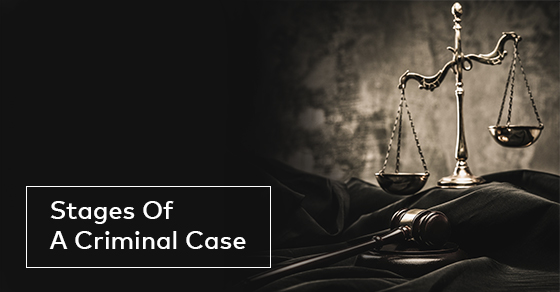The Three Stages of a Criminal Case

There are three stages to a criminal case: the Analysis; the Negotiation; and, if necessary, the Trial. Every case goes through an analysis and a negotiation, but only a minority of cases require a trial.
Pre-Trial Analysis
In order begin to defend a criminal case, it is essential to know what the government’s evidence is. This is mainly the information collected by the police in the form of statements by witnesses; documents; audio-visual evidence; and the notes of the investigators. The evidence in the case will vary depending on the type of case. The evidence in a one-time allegation of a domestic assault will differ a great deal from that of a large and complex fraud, or a motor vehicle collision.
The Crown, who prosecutes the case, will make decisions based on the evidence that is provided to them. For that reason, it is important to know what that evidence is, so that the defence can anticipate the Crown’s position and plan an effective response.
The defendant in a criminal case has a constitutional right to know what the evidence is in the case against them. The evidence that is turned over to the defence is referred to as the “disclosure”. The lawyer will carefully review the evidence to make sure it is complete, and will perform an analysis to determine what options are available to the client. What is the best case scenario? The worst case? And what are the outcomes in between?
In addition to the government’s evidence, the defence will also seek to obtain evidence that will help the client. This can come from the client himself; witnesses that the client knows of; or evidence obtained from a private investigator. That way the defence lawyer will have a more complete picture of the evidence than the Crown will. This provides the defence with a strategic advantage over the prosecution.
Once the analysis is complete, the lawyer will meet again with the client to discuss options and strategy. What is the desired outcome in the case? What are the chances of achieving that desired outcome? What are the steps required to achieve that outcome? How long will it take? How much will it cost? These are all questions that a god defence lawyer will discuss with the client.
Pre-Trial Negotiation
Prosecutors are busy; they often lack the time to fully review and analyze a file. That provides an opportunity to the defence to control the process to some extent by determining what information to share with the Crown, and in some cases to essentially do the Crown’s job of analysis for them. The goal of a negotiation is to persuade the Crown to accept the proposal that the lawyer and client have identified as the desired outcome for the case. The manner of doing so will vary from lawyer to lawyer and from case to case, but should involve a series of contacts and discussions with the Crown. These can take place in person, by phone, by email, and, at a later stage, can involve a judge (a procedure known as a judicial pretrial or “JPT”).
Every case has a negotiation component. In some cases, the negotiation results in the resolution of the case: a withdrawal of the charges, or a guilty plea. In other cases, the negotiation does not result in a resolution but leads to a trial. A good lawyer will present the client’s case in the most effective way, without compromising the client’s position should a trial later become necessary. In some situations, the lawyer will recommend that a client take counselling; perform community service; obtain treatment for addiction or mental health issues; or pay restitution before completing negotiations. In other cases where a resolution is not possible, the negotiation might consist of determining the terms of trial or preliminary hearing: which witnesses are required; the issues to be litigated; the time-frame, and so on.
The Trial
In some cases, a trial becomes necessary. That might happen because the client is innocent of the allegations, and the Crown refuses to withdraw the charges. Or it might be because the best outcome the prosecutor is prepared to live with is not an outcome that is satisfactory to the client, and a trial might yield a better result. And in some cases a trial is necessary because the client simply does not have the option of being subjected to the consequences of a guilty plea (loss of a driver’s licence; a jail sentence; sex offender registration; or inability to enter the U.S.) and must fight to win an acquittal.
A trial can take place in one or two stages, depending on whether the client has the option of a preliminary hearing (90% of cases do not have that option). A trial should always be a last resort, because it prolongs the case and is very expensive. It is also risky: unlike a negotiation, the defence cannot control the proceedings to the same extent, or choose whether to accept the outcome. That is why all the options that might yield a favourable result for the client should be explored before setting a trial date.
A good defence lawyer will explain the entire process (analysis, negotiation and trial) to the client, as well as the various options available (including timeframe and cost) so that the client can properly make decisions about what to do. The client should be a full participant in the process, since it is the client who will have the live with the consequences. A good lawyer will always communicate fully and honestly with the client; will be available and easy to reach; and will explain the issues in a manner that is clear and easy to understand.
Updated March 2022

